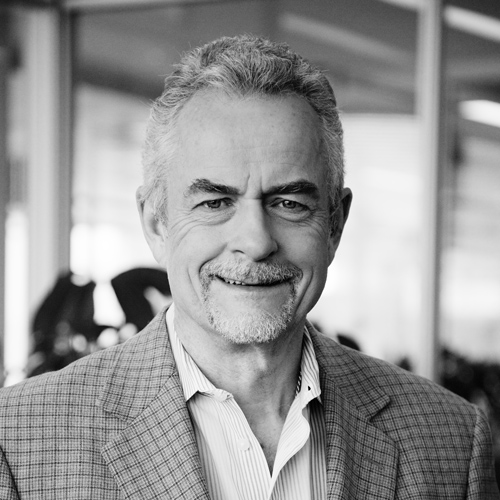At investment firm Manning & Napier, all kinds of roads travel through the office of Richard Yates, the firm’s chief legal officer. Handling legal, compliance, and the company’s funds group means that Yates has to switch management styles on a dime. The concerns of each area of the business have a different texture, and even though the final goal is always customer satisfaction, Yates must remain alert and agile as he moves from one role to the other, speaking the appropriate language while sticking to his basic leadership values.
“Our business is a very human business, and that’s a good fit for me,” he says. “I’ve always tried to do my job from a management perspective while keeping in mind the humanity of it all and the importance of building relationships—regardless of who the stakeholders are—whether it be people who work for me, who work with me, who I work for, clients, or vendors. I try to treat everybody with a high degree of respect and engagement.”
When he is at the table with the compliance team, Yates reminds himself that the main concerns are rigidly detail-based: a compliance program has been designed and the goal is to implement it thoroughly. In that department, the risks have already been identified and the policies and procedures in place are there to address those risks.
“You can create a bad vibe with compliance if you’re too holistic,” Yates says. “They have a mandate to design and implement and monitor audited compliance programs. They are, out of necessity, document- and checklist-oriented. The audit trail is heavy.”
Even so, the way he talks to compliance won’t work with the legal team, where contracts are in the midst of negotiation and regulatory trends are in a continual state of evolution.
“Embracing a different approach is important, because if you’re too detail-oriented with legal, that can make them feel like technocrats,” Yates says. “It’s almost a direct inversion of working with compliance, where it is the details that are most important.”
Turning to the funds group, Yates says he has to take off his lawyer hat and be a pure business leader—focused on the mission of the business and what it takes to meet those objectives.
From a customer perspective, everything is perception in the industry. That’s something Yates has managed since the company’s longtime CEO stepped down in April 2016. At press time, majority owner Bill Manning was serving as CEO and the firm had not yet initiated a search for a replacement.
“It ushered in a period of operating transition both internally and externally,” Yates explains. “I have tried to put myself in anybody else’s shoes other than my own and then think through that and determine how to approach them in terms of managing expectations.”
Yates found himself working with the board of directors, the departments that report to him, and clients wanting to know how the change might affect the research process and other areas of the company’s operations.
“I’ve always tried to do my job from a management perspective while keeping in mind the humanity of it all and the importance of building relationships—regardless of who the stakeholders are.”
“Change is always a loaded moment, especially in our industry,” he says. “These are all people with different personalities, and we needed to work through the transition in a way that didn’t create undue consternation among any of them.”
The world outside the company’s offices is always changing as well—particularly in terms of regulations. The company isn’t a registered money manager in the European Union, for example, but the marketplace is global now and it has to be on top of regulatory changes there. Upcoming changes are generally visible through the media, but Yates needs to figure out if those changes are applicable to Manning & Napier.
“Our client doesn’t worry about the metaphysics on the legal side,” he says. “They just want to make sure we’re in line contractually and that they have protection. We have to do that.”
Another area that stays in flux is cybersecurity, which in the past decade or so has become a top internal priority of all businesses. The investment industry has to be especially alert because of all the client data they manage.
“It’s a hard beast to tame,” Yates says of cybersecurity. “You have to design as comprehensive a program as possible that is also scalable in a future-looking sense. It has to be constantly reviewed and updated. It is built to constantly change, which is a strange concept from a management perspective. You want to have a client-driven response informed with legal input, but that isn’t driven by the lawyers. If you’re overly legalistic, that can lead to damage in our relationships with clients.”
Listening to Yates speak, you might imagine him sitting in a captain’s chair and spinning in circles to address all the disparate elements of the business that come to him. Of course, he says fielding all of the different conversations doesn’t bother him.
“To me the most successful business lawyer is one who marries legal expertise to the business expertise that is the core business of company, and then connects those spheres through effective communication,” he says. “That’s what I try to do.”

